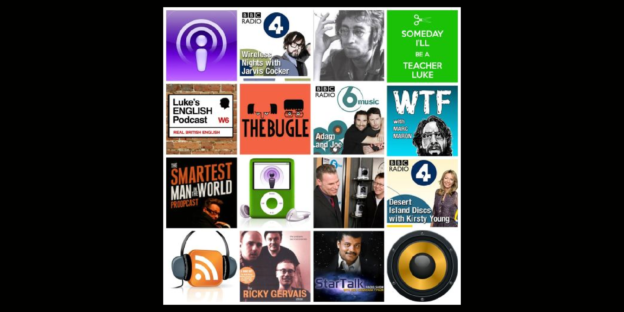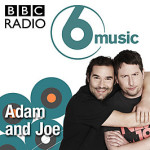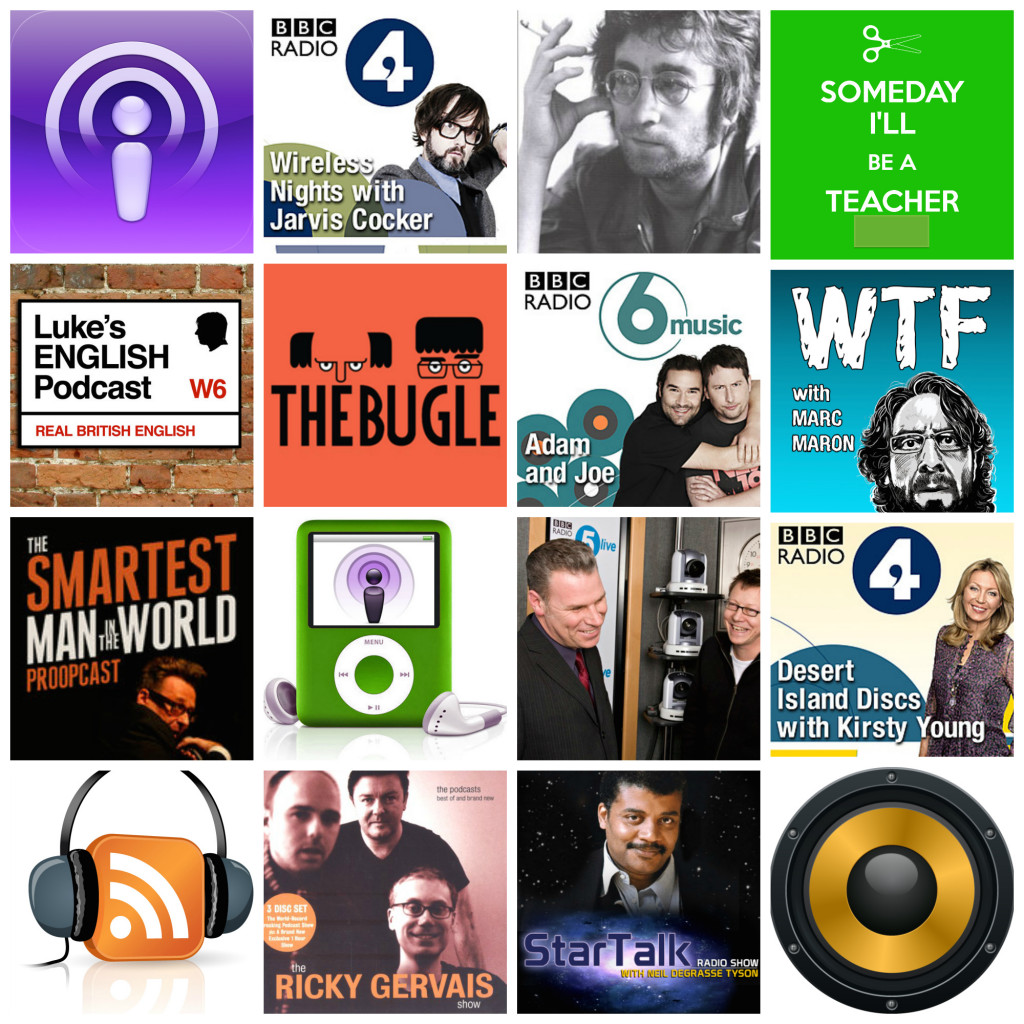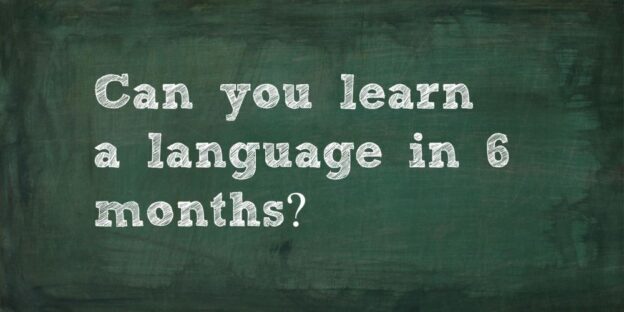 This episode is based on a TEDx presentation by Chris Lonsdale, who claims that any normal adult can learn a language within 6 months. Is that really possible? What method of learning does Chris propose? How does this relate to listening to Luke’s English Podcast? You can see the video of Chris Lonsdale’s talk, with a transcript below. [Download]
This episode is based on a TEDx presentation by Chris Lonsdale, who claims that any normal adult can learn a language within 6 months. Is that really possible? What method of learning does Chris propose? How does this relate to listening to Luke’s English Podcast? You can see the video of Chris Lonsdale’s talk, with a transcript below. [Download]
[socialpoll id=”2230442″]
Chris Lonsdale’s TEDx Talk (transcript below)
Transcript of Chris Lonsdale’s Presentation
How to learn any language in six months: Chris Lonsdale
Have you ever held a question in mind for so long that it becomes part of how you think? Maybe even part of who you are as a person? Well I’ve had a question in my mind for many, many years and that is: how can you speed up learning? Now, this is an interesting question because if you speed up learning you can spend less time at school. And if you learn really fast, you probably wouldn’t have to go to school at all. Now, when I was young, school was sort of okay but I found quite often that school got in the way of learning, so I had this question in mind: how do you learn faster? And this began when I was very, very young, when I was about eleven years old I wrote a letter to researchers in the Soviet Union, asking about hypnopaedia, this is sleep learning, where you get a tape recorder, you put it beside your bed and it turns on in the middle of the night when you’re sleeping, and you’re supposed to be learning from this. A good idea, unfortunately it doesn’t work. But, hypnopaedia did open the doors to research in other areas and we’ve had incredible discoveries about learning that began with that first question.
I went on from there to become passionate about psychology and I have been involved in psychology in many ways for the rest of my life up until this point. In 1981 I took myself to China and I decided that I was going to be native level in Chinese inside two years. Now, you need to understand that in 1981, everybody thought Chinese was really, really difficult and that a westerner could study for ten years or more and never really get very good at it. And I also went in with a different idea which was: taking all of the conclusions from psychological research up to that point and applying them to the learning process. What was really cool was that in six months I was fluent in Mandarin Chinese and took a little bit longer to get up to native. But I looked around and I saw all of these people from different countries struggling terribly with Chinese, I saw Chinese people struggling terribly to learn English and other languages, and so my question got refined down to: how can you help a normal adult learn a new language quickly, easily and effectively? Now this a really, really important question in today’s world. We have massive challenges with environment we have massive challenges with social dislocation, with wars, all sorts of things going on and if we can’t communicate we’re really going to have difficulty solving these problems. So we need to be able to speak each other’s languages, this is really, really important. The question then is how do you do that. Well, it’s actually really easy. You look around for people who can already do it, you look for situations where it’s already working and then you identify the principles and apply them. It’s called modelling and I’ve been looking at language learning and modelling language learning for about fifteen to twenty years now. And my conclusion, my observation from this is that any adult can learn a second language to fluency inside six months. Now when I say this, most people think I’m crazy, this is not possible. So let me remind everybody of the history of human progress, it’s all about expanding our limits.
In 1950 everybody believed that running one mile in four minutes was impossible and then Roger Bannister did it in 1956 and from there it’s got shorter and shorter. 100 years ago everybody believed that heavy stuff doesn’t fly. Except it does and we all know this. How does heavy stuff fly? We reorganise the material using principles that we have learned from observing nature, birds in this case. And today we’ve gone ever further, so you can fly a car. You can buy one of these for a couple hundred thousand US dollars. We now have cars in the world that can fly. And there’s a different way to fly that we’ve learned from squirrels. So all you need to do is copy what a flying squirrel does, build a suit called a wing suit and off you go, you can fly like a squirrel. Now, most people, a lot of people, I wouldn’t say everybody but a lot of people think they can’t draw. However there are some key principles, five principles that you can apply to learning to draw and you can
actually learn to draw in five days. So, if you draw like this, you learn these principles for five days and apply them and after five days you can draw something like this. Now I know this is true because that was my first drawing and after five days of applying these principles that was what I was able to do. And I looked at this and I went ‘wow,’ so that’s how I look like when I’m concentrating so intensely that my brain is exploding.
So, anybody can learn to draw in five days and in the same way, with the same logic, anybody can learn a second language in six months. How? There are five principles and seven actions. There may be a few more but these are absolutely core. And before I get into those I just want to talk about two myths, dispel two myths. The first is that you need talent. Let me tell you about Zoe. Zoe came from Australia, went to Holland, was trying to learn Dutch, struggling extremely … a great deal and finally people were saying: ‘you’re completely useless,’ ‘you’re not talented,’ ‘give up,’ ‘you’re a waste of time’ and she was very, very depressed. And then she came across these five principles, she moved to Brazil and she applied them and within six months she was fluent in Portuguese, so talent doesn’t matter. People also think that immersion in a new country is the way to learn a language. But look around Hong Kong, look at all the westerners who’ve been here for ten years, who don’t speak a word of Chinese. Look at all the Chinese living in America, Britain, Australia, Canada have been there ten, twenty year and they don’t speak any English. Immersion per se does not work. Why? Because a drowning man cannot learn to swim. When you don’t speak a language you’re like a baby and if you drop yourself into a context which is all adults talking about stuff over your head, you won’t learn.
So, what are the five principles that you need to pay attention to? First: four words, attention, meaning, relevance and memory, and these interconnect in very important ways. Especially when you’re talking about learning. Come with me on a journey through a forest. You go on a walk through a forest and you see something like this. Little marks on a tree, maybe you pay attention, maybe you don’t. You go another fifty metres and you see this. You should be paying attention. Another fifty metres, if you haven’t been paying attention, you see this. And at this point, you’re paying attention. And you’ve just learned that this is important, it’s relevant because it means this, and anything that is related, any information related to your survival is stuff that you’re going to pay attention to and therefore you’re going to remember it. If it’s related to your personal goals then you’re going to pay attention to it, if it’s relevant you’re going to remember it.
So, the first rule, the first principle for learning a language is focus on language content that is relevant to you. Which brings us to tools. We master tools by using tools and we learn tools the fastest when they are relevant to us. So let me share a story. A keyboard is a tool. Typing Chinese a certain way, there are methods for this. That’s a tool. I had a colleague many years ago who went to night school; Tuesday night, Thursday night, two hours each night, practicing at home, she spent nine months, and she did not learn to type Chinese. And one night we had a crisis. We had forty- eight hours to deliver a training manual in Chinese. And she got the job, and I can guarantee you in forty-eight hours, she learned to type Chinese because it was relevant, it was meaningful, it was important, she was using a tool to create value. So the second tool for learning a language is to use your language as a tool to communicate right from day one. As a kid does. When I first arrived in China I didn’t speak a word of Chinese, and on my second week I got to take a train ride overnight. I spent eight hours sitting in the dining care talking to one of the guards on the train, he took an interest in me for some reason, and we just chatted all night in Chinese and he was drawing pictures and making movements with his hands and facial expressions and piece by piece by piece I understood more and more. But what was really cool, was two weeks later, when people were talking Chinese around me, I was understanding some of this and I hadn’t even made any effort to learn that. What had happened, I’d absorbed it that night on the train, which brings us to the third principle. When you first understand the message, then you will acquire the language unconsciously. And this is really, really well documented now, it’s something called comprehensible input and there’s twenty or thirty years of research on this, Stephen Krashen, a leader in the field has published all sorts of these different studies and this is just from one of them. The purple bars show the scores on different tests for language. The purple people were people who had learned by grammar and formal study, the green ones are the ones who learned by comprehensible input. So, comprehension works. Comprehension is key and language learning is not about accumulating lots of knowledge. In many, many ways it’s about physiological training. A woman I know from Taiwan did great at English at school, she got A grades all the way through, went through college, A grades, went to the US and found she couldn’t understand what people were saying. And people started asking her: ‘Are you deaf?’ And she was. English deaf. Because we have filters in our brain that filter in the sounds that we are familiar with and they filter out the sounds of languages we’re not. And if you can’t hear it, you won’t understand it and if you can’t understand it, you’re not going to learn it. So you actually have to be able to hear these sounds. And there are ways to do that but it’s physiological training. Speaking takes muscle. You’ve got forty-three muscles in your face, you have to coordinate those in a way that you make sounds that other people will understand. If you’ve ever done a new sport for a couple of days, and you know how your body feels? It hurts. If your face is hurting you’re doing it right.
And the final principle is state. Psycho-physiological state. If you’re sad, angry, worried, upset, you’re not going to learn. Period. If you’re happy, relaxed, in an Alpha brain state, curious, you’re going to learn really quickly, and very specifically you need to be tolerant of ambiguity. If you’re one of those people who needs to understand 100% every word you’re hearing, you will go nuts, because you’ll be incredibly upset all the time, because you’re not perfect. If you’re comfortable with getting some, not getting some, just paying attention to what you do understand, you’re going to be fine, you’ll be relaxed and you’ll be learning quickly. So based on those five principles, what are the seven actions that you need to take?
Number one: listen a lot. I call it Brain Soaking. You put yourself in a context where you’re hearing tons and tons of a language and it doesn’t matter if you understand it or not. You’re listening to the rhythms, you’re listening to things that repeat, you’re listening to things that stand out. So, just soak your brain in this.
The second action: is that you get the meaning first, even before you get the words. You go “Well how do I do that, I don’t know the words?” Well, you understand what these different postures mean. Human communication is body language in many, many ways, so much body language. From body language you can understand a lot of communication, therefore, you’re understanding, you’re acquiring through comprehensible input. And you can also use patterns that you already know. If you’re a Chinese speaker of Mandarin and Cantonese and you go Vietnam, you will understand 60% of what they say to you in daily conversation, because Vietnamese is about 30% Mandarin, 30% Cantonese.
The third action: start mixing. You probably have never thought of this but if you’ve got ten verbs, ten nouns and ten adjectives you can say one thousand different things. Language is a creative process. What do babies do? Okay: Me. Bat(h). Now. Okay, that’s how they communicate. So start mixing, get creative, have fun with it, it doesn’t have to be perfect, it just has to work. And when you’re doing this you focus on the core. What does that mean? Well with every language there is high frequency content. In English, 1000 words covers 85% of anything you’re ever going to say in daily communication. 3000 words gives you 98% of anything you’re going to say in daily conversation. You got 3000 words, you’re speaking the language. The rest is icing on the cake. And when you’re just beginning with a new language start with the tool box. Week number one in your new language you say things like: ‘how do you say that?’ ‘I don’t understand,’ ‘repeat that please,’ ‘what does that mean,’ all in your target language. You’re using it as a tool, making it useful to you, it’s relevant to learn other things about the language. By week two that you should be saying things like: ‘me,’ ‘this,’ ‘you,’ ‘that,’ ‘give,’ you know, ‘hot,’ simple pronouns, simple nouns, simple verbs, simple adjectives, communicating like a baby. And by the third or fourth week, you’re getting into what I call glue words. ‘Although,’ ‘but,’ ‘therefore,’ these are logical transformers that tie bits of a language together, allowing you to make more complex meaning. At that point you’re talking. And when you’re doing that, you should get yourself a language parent. If you look at how children and parents interact, you’ll understand what this means. When a child is speaking, it’ll be using simple words, simple combinations, sometimes quite strange, sometimes very strange pronunciation and other people from outside the family don’t understand it. But the parents do. And so the kid has a safe environment, gets confidence. The parents talk to the children with body language and with simple language they know the child understands. So we have a comprehensible input environment that’s safe, we know it works otherwise none of you would speak your mother tongue. So you get yourself a language parent, who’s somebody interested in you as a person who will communicate with you essentially as an equal, but pay attention to help you understand the message. There are four rules of a language parent. Spouses by the way are not very good at this, okay? But the four rules are, first of all, they will work hard to understand what you mean even when you’re way off beat. Secondly, they will never correct your mistakes. Thirdly they will feedback their understanding of what you are saying so you can respond appropriately and get that feedback and then they will use words that you know.
The sixth thing you have to do, is copy the face. You got to get the muscles working right, so you can sound in a way that people will understand you. There’s a couple of things you do. One is that you hear how it feels, and feel how it sounds which means you have a feedback loop operating in your face, but ideally, if you can look at a native speaker and just observe how they use their face, let your unconscious mind absorb the rules, then you’re going to be able to pick it up. And if you can’t get a native speaker to look at, you can use stuff like this: [slides].
And the final idea here, the final action you need to take is something that I call “direct connect.” What does this mean? Well most people learning a second language sort of take the mother tongue words and take the target words and go over them again and again in their mind to try and remember them. Really inefficient. What you need to do is realise that everything you know is an image inside your mind, it’s feelings, if you talk about fire you can smell the smoke you can hear the crackling, you can see the flames. So what you do, is you go into that imagery and all of that memory and you come out with another pathway. So I call it ‘same box, different path.’ You come out of that pathway, you build it over time you become more and more skilled at just connecting the new sounds to those images that you already have, into that internal representation. And over time you even become naturally good at that process, that becomes unconscious.
So, there are five principles that you need to work with, seven actions, if you do any of them, you’re going to improve. And remember these are things under your control as the learner. Do them all and you’re going to be fluent in a second language in six months.
Thank you.
Comments Thread from YouTube
Incredible stupid ideas. An incredible collection of sophisms. A stupid guy who has no idea about language learning. And it is supported by “studies”. Of course, you can “speak” Chinese in 10 days, but that will be “hello” and “thank you”. This video is a mockery. This moron cannot even understand the role of grammar. Grammar is not some torture that you sadistically apply to students. Grammar is the short(est)cut to make students understand how that language works: This moron doesn’t even know that there are a lot of people who can’t even speak their mother tongue properly. But “EVERYBODY” will learn a foreign language in 6 months. Will they go to their jobs in the mean time? Take care of their family matters? Sleep? Follow his advice and you’ll speak that language the way lowly-educated immigrants do.
Marcus T Anthony
Have you considered the possibility that you don’t understand the subject matter? What would happen if, instead of opposing ideas which contradict yours, you tried embracing them?
Radouane Rabei
I don’t know how or where you get the nerve to be able to say something like ‘Incredible stupid ideas’ and ‘A stupid guy who has no idea about language learning.’ when everything you say after that proves, you actually know absolutely nothing about language learning. How many languages did you have to learn other than English?
If it takes you 10 days to learn “hello” and “thank you” in Chinese, or any other language for that matter, that’s called a learning disability, you might wanna have that checked.
I learnt to speak English a while back in less than six months, but English is not the best example because it is such a practical language (you use 30% less words in general to say something in English than you would if you say it in French), I honestly think it is one of, if not the easiest language to pick up, I love it
Here is another genius statement
‘Grammar is the short(est)cut to make students understand how that language works’
I was perfectly fluent in French before I knew anything about French grammar, and in fact for French that would be the long(est)cut, French is a very impractical language, with ridiculous grammar rules.
This man in the video talks a lot of sense, if you really apply everything he says it would take the average person less than six months to speak any language pretty well, I have done it myself twice, and seen it done countless times with friends I grew up with .
Does this mean we should all start fires at our local libraries, and ban language classes, no of course not
Are you gonna be perfect in that language in six months, no, but it will be much easier for you to learn grammar after if you still really want to.
sorin86yt
+Marcus T Anthony Actually, no, I haven’t. I have 20+ years of experience in language tutoring. I tried some of the new stupid fast-food methods and they are what they are: deceptions. All these fast-food ways have appeared for commercial reasons. They fool potential clients that learning can be miraculously shortened, and also that any moron can learn a foreign language. This way language teaching businesses attract more clients willing to take short-cuts. There are also a lot morons exited by “revolutionary” ideas, like teenagers, and really believe that the man who will live 300 years is already born.
Jaime Benito de Valle Ruiz
For your information, Chris is almost native-like in Mandarin (I’ve heard him), so I am sure he knows a thing or two about learning a difficult foreign language well, regardless of what is trying to sell us. How about you? I guess you must have mastered dozens of languages to make your claims about how stupid these methods are, right? What he is saying overlaps a lot with the advice I’ve heard from others polyglots, so I don’t think it is as silly as you think… unless you are the indisputable king of languages, that is.
By the way, while I first had a placement in a language school, I saw a few students becoming reasonably fluent in other languages within 4 months, to my surprise, and a lot of them within 6 months, and I don’t mean saying hello and goodbye, but maintaining a fluent conversation for hours on topics as complex as politics or sociology, or discussing their cultural or banking problems, as well as being able to read a newspaper without effort and comfortably watching movies without subtitles. Granted, some occasional mistakes here and there sometimes, but good enough to function efficiently in a professional working environment (where they also say hello and goodbye too).
One last thing: almost no native speaker in any language has any conscious knowledge of their own grammar. Grammar is great for understanding how a language works, if that is what you want, but it won’t even guarantee that you’ll be able to speak or even understand the language. Grammar is to languages a bit like a book of human physiology is to playing a sport. And I know because I am a grammar freak.
Paul Coffey
+sorin86yt Given your 20+ years of tutoring experience, I’m curious to hear what alternative methods you would propose. Like many of the people who have left comments here, my lived experience of getting to fluency in two new languages (Mandarin Chinese and Cantonese Chinese) matches very closely the methods that Chris is talking about.
For example, he talked about acquiring the language based on prior understanding (i.e. the comprehensible input approach). Based on my experience in China, I found that watching movies in their original English, and then repeatedly watching them with the Chinese audio dubbing, was very useful to me. Watching them in English allowed me to first understand the story, and then re-watching them in Chinese enabled me to take advantage of the comprehensible input environment.
Having said that, I’ve only got my own personal experience to go by. Clearly, your own experience is somewhat at odds with what Chris is saying. Could you share a little more about what has worked for you?
Truthseeker1961
People like ”sorin86yt” who have been deeply entrenched in their respective fields ALWAYS have knee-jerk reactions to new ideas and new methods because THEIR way is the ONLY way, and they don’t want to hear anything about it outside of their norm, and the 6 people who ”liked” his comment are staunch defenders of the status quo no matter what advances are introduced now, or anytime in the future.
sorin86yt
I kinda knew I was going to stir up such comments from delusional people. However, Youtube comments is not the right place for scientific debates.
Almost each minutes of this video contains something stupid. We can only try to point out some of the cheats. The most obvious one is the arbitrary duration: 6 months! Why 6 months and not 6m and 1w? Or 5m and 2w? What exactly does that person do during those 6 months? Only travelling by train in that country? Do they sleep? Do they have a job? Do they see after their family? Are they healthy?
Any competent language teacher will tell you that “6 months” is meaningless. The learning process is estimated by professionals in HOURS!!!! Take my intermediate-level English course. The “average” student (“average” – another approximation that kills the idea of a fixed time) will need about 80 hours of instruction with the teacher, and then about the double in individual study (homework, practice, listening etc). A rough total of 240 hours. What is that in calendar time? Nobody can foresee!! If the student happens to have a lot of time to dedicate to the foreign language, let’s say 6 hours/day, we calculate 40 days, which happens to be about 5 times faster that the moron in the video claims. :) (Not mentioning that 240 hours mathematically equals 10 full days!). However, this doesn’t happen in real time. That “average” student has a job, a family, a hobby, (a disease maybe?), he has to sleep, to eat, to drive… Eventually, it comes down to about 6 hours/week (2 in class and 4 outside), which suggests 40 weeks (a little more than 9 months, not bad, huh?). However, that too rarely happens in real life. In a nine months’ time both the student and the teacher will have holidays, or business travels, or sick leaves… It may go up to 1 year and beyond. BUT the orientation line is always the number of hours. Not X months.
The next level of deception in this video is about the student. Who is that student? Whoever has ever taught anything knows students are of various “speeds” (because of talent (of course, talent matters hugely, morons!), previous knowledge, motivation, practice environment, how serious the student is about learning….). What is “6 months” for a student might be “3 months” for another one or “12 months” for another one (or even “never”!).
This video looks just like a stupid teleshopping presentation where they want to make us believe that the kitchen knife is the most spectacular invention of mankind.
![]() [Download]
[Download]




































